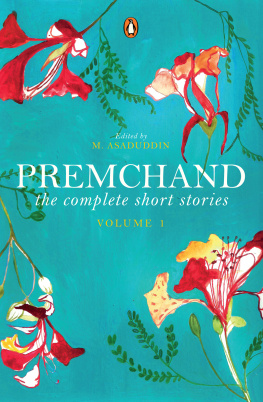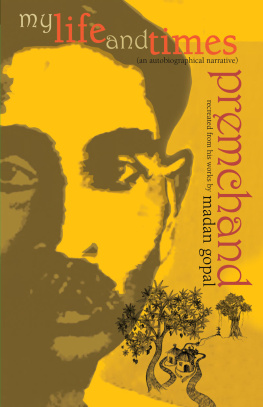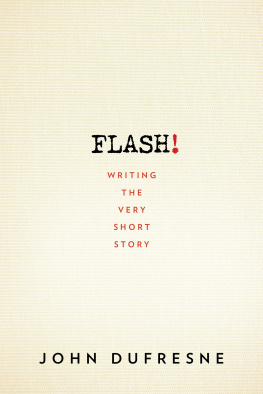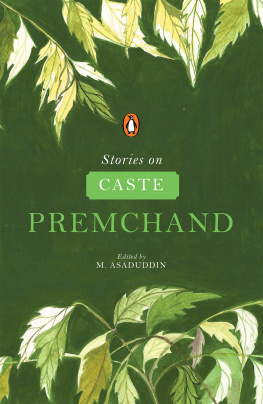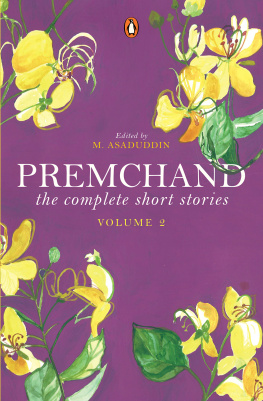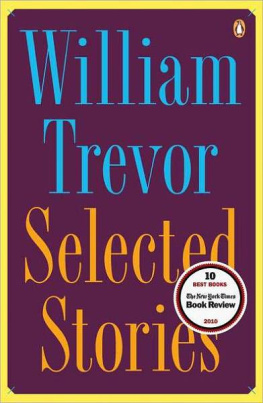Advance Praise for the Volumes
Not having access to all of Premchands stories has always been a cause of frustration to his readers. The publication now of the entire, admittedly huge, corpus of his short stories is very welcome. Premchandin spite of occasional challengesremains a true colossus of Indian literature. The sheer variety, with its hypnotic power, and the vastness of his output is staggering. It is impossible to arrive at any kind of assessment of modern Indian literature without taking full account of Premchand. Then, his fiction as a living source and commentary on the social, political and rural India of the early part of the twentieth century is valuable and relevant even today. These four volumes deserve a place on the bookshelf of every lover of modern fiction, in India or elsewhere
SHAMSUR RAHMAN FARUQI
well-known critic, poet and novelist in Urdu
Premchands fiction draws from his vast experience of the conflicts of village life, of caste tensions, of excessive revenue demands and the never-ending chain of debts entailed by these. If these are grim tales, they are both deepened and lightened by his psychological insight, his irony and humour, and the broad canvas on which they are drawn, which links country and city in a manner unknown in HindiUrdu fiction writing before him. To present this rich corpus, drawn exhaustively from both Urdu and Hindi originals, the vast majority made available in English for the first time, is a pioneering feat for which the translators are to be congratulated
VASUDHA DALMIA
professor emerita of Hindi and Modern South Asian Studies, University of California, Berkeley
At once an extraordinary feat of scholarship and an immense labour of love, this collection gives us the complete corpus of Premchands short stories in English translation for the first time. It thus allows readers without access to either or both of Premchands languages of composition, Urdu and Hindi, insight into one of the greatest writers of Indias modernityindeed, into the making of modern India. Most importantly, as the rich and informative Introduction to this translation states, the stories bear witness to Premchands secular and inclusive view of the Indian nation. Premchands socialism, his realism, his role in the fashioning of a modern prose style in two languages, his searing insights into caste and gender politics, his sympathy for the oppressed, for the labouring poor, even for working animals, make him a writer from whom we still have much to learn. If this remarkable collaborative enterprise brilliantly led by M. Asaduddin helps us to do so, its purpose will be served
SUPRIYA CHAUDHURI
professor emerita, Department of English, Jadavpur University, Kolkata
It is a valuable work, especially for foreign readers who cannot read the original text in Hindi or Urdu. This complete translation of Premchands short stories must be welcomed as a major contribution to the accessibility to modern Indian literature. Being considered one of the foundational figures of modern Indian literature, Premchand deserves this kind of ambitious work on him, which will find him his rightful place in world literature
PHILIPPE BENOT
Sanskritist and professor of Bengali, National Institute for Oriental Languages and Civilizations, Paris
Premchand is one of the most famousperhaps the most famousHindi authors. Many of his short stories have been translated into a wide array of languages. And yet, when one looks at these selections it appears that the translators tended to choose a particular set of stories regarded as Premchands masterpieces, ignoring the rest. The present collection aims to present the full picture, displaying Premchand at different stages of his life, in different moods, displaying changing attitudes with regard to the functionality of literature. For the first time, readers of English will be able to appreciate Premchands story-telling in all its facets and fullness
CHRISTINA OESTERHELD
professor of Urdu, University of Heidelberg, Germany
Premchand was greatly popular with an earlier generation of Russian readers. This anthology will certainly enhance his visibility to an international audience and make him popular with the new generation of Russian readers and scholars of Indian literature
GUZEL STRELKOVA
professor of Hindi, Moscow State University, Moscow
For
Jamia Millia Islamia,
a university that has nurtured composite culture,
secular nationalism and pluralism for 100 years
Foreword
During the birth centenary celebrations of Premchand (18801936), he was described as one of the panch devata, that is, one of the five gods, or (to put it more plausibly in English and also perhaps a bit more secularly!) one of the five iconic figures of modern Indian literature. This was high praise indeed, for each one of the twenty-four languages of India which are recognized and honoured by the Sahitya Akademi can boast of several outstanding writers in the modern period. The foremost of these probably still is Rabindranath Tagore, best known for his lyrical and transcendentally spiritual poetical works and, of course, for being the first, and so far the only, Indian to win the Nobel Prize for literature. But of those following behind him, Premchand stands as tall as any other writer.

